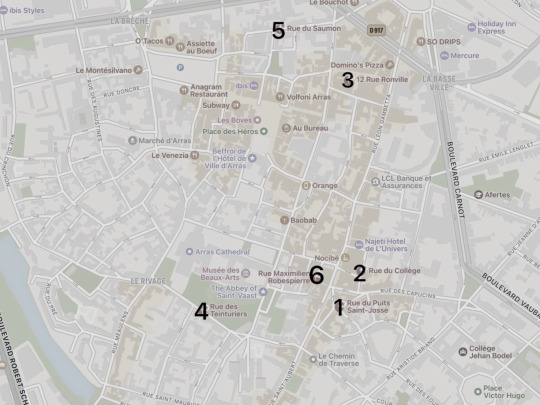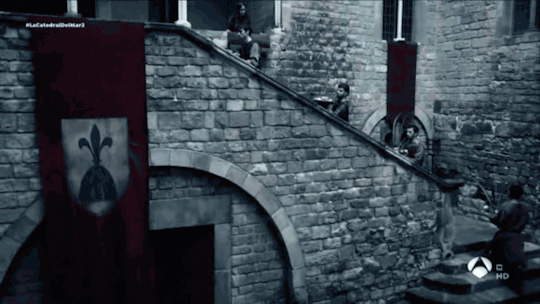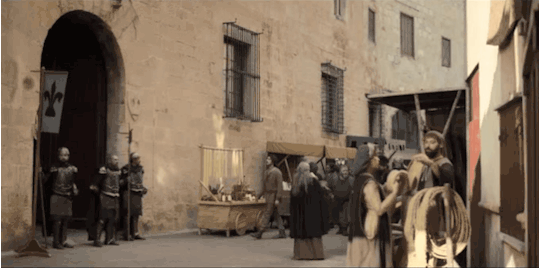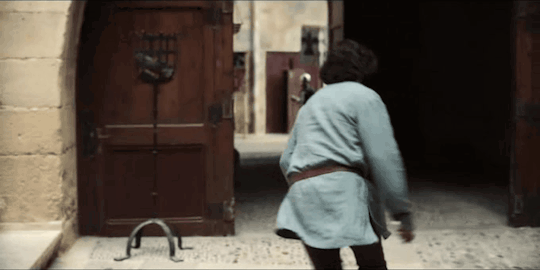#notary tree
Text
I've been so busy the past few weeks between moving and working and cleaning and everything. I've barely had time to paint, let alone post anything relatively interesting. But check out my graffiti wall. I'm soooo close to being done!!










#art#acrylic painting#columbus ohio#a notary painted this#notary tree#painting#basement#wall art#graffitiart#graffiti#i hate moving#always watching#love#music#graffiti tags#swerve#chance#rouge#dank#cash#peace#eyes#abstract eyes
3 notes
·
View notes
Note
Wait so Adam failed to buy the tree? I thought he owned it and fed it blood
'Knock, knock!'
Who could it be, Adam wondered as he opened his eyes. I'm not expecting anyone.
Someone knocked at the door again, much louder this time.
"I am coming, gimme a second!" the guy grumbled, getting up.
Reluctantly, he walked to the door.
"Who is it?"
No one answered.
He opened the door ...just to see a Bonsai Tree placed in the way. Taken aback by Its beauty, Adam just stared at It for a few moments.
Who could it have been? And what's this Bonsai Tree is doing here?
He kneeled down to give It a closer look and found a letter.

#ten days passed by but no one showed up of course#later he figures out who is the original owner#and decides to buy it from them#for that their servant sent him to a notary which calculates the price(s) which turns out to be very expensive#he goes on his hardworking mode and makes the cash#once collecting all the bucks he returns back to the rich up floors just to figure out the numbers went even higher#as it turned out notary makes prices up by analyzing one's wishes and wants for the stuff he sells#adam ended up getting kinda obsessed with the bonsai tree sooooo yeahh lol#neverendingparable#regarding adam#canons
2 notes
·
View notes
Note
Dear Advisor,
I tend to be a very reserved and shy person so making friends is super hard. Recently I’ve been wanting to socialize more , but I genuinely don’t know how. Is there any advice that you have that can make me look more approachable and not be scared to talk to people. I’m so stressed about being alone and not having any friends, but I just find it so hard to go up to people and make a conversation. I tried once but it became super awkward. I just really need good advice from someone on how to approach a person and continue a conversation.

Dear Awkward Anonymous,
It would be so easy to get into a whole deep let's-skeetshoot-therapy-on-the-internet session and try to help a total stranger unpack all of the GA-FUCKING-ZILLION ways in which social awkwardness shows up in a person's life. It seems easy, and it even seems meaningful and worthwhile, but to do so I would have to presume a bunch about your life, and make a bunch of assumptions about the ways in which my own experiences maybe/probably track with yours, and it would be a whole big wank-fest, and frankly ... it would be awkward. I'd be like you, standing there at the party, hoping that what I'm saying resonates or lands or even vaguely tracks with anything a stranger has ever known or experienced, presuming (probably rightly!) that it doesn't, and then flailing and blaming myself when I didn't emerge from the interaction with all the world's gold stars.
So here's what: stop talking to other people as a primary social occupation. Going up to people and just talking is fucking terrifying. The Bad Advisor says this as a Certified Extrovert™ who rarely shuts the fuck up.
Instead, find a thing to do with other people that involves some sort of task or goal or activity. Talk about the thing you're doing together, when you're doing it. If it feels okay, maybe introduce one or two of your own relatable-to-the-activity experiences in the process. See who picks up on it. Ask the people who pick up on it genuinely interested questions in response. This is what we awkward people call: engineering a conversation. It is the way, I am told, humans make connections with other humans. I have seen it work in my own life.
Depending on where you live and your ability level and skill set, I bet you have some options! You could seek out an open board game night, pub quiz session, knitting/quilting circle, or mutual aid meetup that's looking for volunteers. Especially look for social activities with strangers that involve a dedicated, pre-prescribed activity (such as a hiking or mall-walking group, stuffing envelopes for a political candidate or cause you care about, planting trees at your local park, or tasting tea/wine/beer/etc.). (Somebody is going to say join a ballroom dancing club or suchlike; I am personally terrified of this, but if you have a higher tolerance for strangers touching you and fewer than two left feet: it's literally an option. Line-dancing, on the other hand ... absofuckinglutely.)
Even if what's available in your area isn't your precise and specific interest, it might be worthwhile to check out something you are decidedly meh about -- you might not be the only meh person there. You can bond over shit that's boring or shitty with other people who find it boring or shitty! Some of my best friends, arguably my very best friends, came out of experiences we mutually loathed or found at least moderately and mutually miserable.
Consider especially finding an activity where you yourself are the manager of operations and/or have a designated task to take care of that is unique to your position! This doesn't have to be complicated or skill-dependent; can you become a voter registrar in your area? Well, bam! You've got paperwork people have to fill out and a good reason to jibber-jabber with folks who have to ask you the questions. Other ideas: join your local neighborhood association board, become a notary public, or see if your local pet rescue is looking for intake line volunteers. Do you have a trustworthy, especially outgoing friend who might agree to play "social glue" for you a couple of times at their activity-centric events? Make it explicit! Ask them if they'll play friendly wing-person for you at their D&D game, fantasy sports league, or some such.
Alternately: Do you have a unique and fun and shareable skillset you can share with others? Are you pretty good at drawing, programming? Simply a font of endless Merlin or NFL or Real Housewives knowledge? You might start a local Discord or other online social group to discuss and share your interests, then move it to the real world in a few weeks once folks get comfortable. You get the idea.
Most of all: Look for stuff that has more-than-just-talking opportunities available outside the designated group jam for you to maintain connections. Perhaps a group chat, a Discord, a Slack, what-have-you, where you can take more time to consider and draft your responses and posts? Connections with humans get made a thousand ways, and talking raw-dog with strangers is but one.
It takes a true social unicorn to be simply good at talking and only talking to other people. There are some of these one-horned wonders out there, to be sure — but let me assure you that the vast majority of folks want to be accepted and seen just as much as you do, and they're staring at the ceiling at night thinking just as much (more, probably) about all the weird, wonky shit they themselves threw at you than they are anything you ever said to them.
#good advice#good advice interlude#socializing#awkward#introvert problems#shy#shyness#get out there we're all fucking squares
2K notes
·
View notes
Text
Part 1 Trolls Headcanons/ Theories/ Thoughts/ Ideas
Part2 Part3 Part4 Part5 Part6 Part7 Part8 Part9 Part10
Trolls - in general Trolls are pretty rare outside their usual kingdoms and it's considered good luck to meet one.
Brozone - drastically changed their looks coz they hate that they used to dress the same.
Bruce - one of those dads who would get a new barbeque and show off all the cool features to the other local dads.
Bruce - "No kids, we're not keeping that stray animal, end of story, no way..." - 1 week later and he's giving it kisses and building it an over the top kennel with a heated blanket and a water fountain.
Bruce - (canon?) carried all their eggs, indirect reason why his hair is so big. (Side note - I read somewhere someone called all their kids 'The Bakers Dozen' and I frigging love that)
Floyd - solo career after he left Brozone - all his songs were PINK FLOYD SONGS! (Maybe that could've been his stage name?)
Floyd - his hair is naturally pink but JD made him make it redder because 'we're a boyband and pink is a girls colour'
John Dory - has embarrassing baby pictures of his brothers as leverage
John Dory - over-exaggerates his retellings of stories "I fought off 30 no no no 40 snakes with one hand behind my back."
John Dory - always casually asking Poppy, Brandy and Viva to marry him, over small things too "Brandy, these pancakes are delicious, marry me."
Clay - writes long and very detailed critical reviews of restaurants
Clay - has reading glasses. Probably the ones that attach magnetically at the nose ridge.
Clay - labels everything (labelmaker is to Clay as Gary is to Branch)
Clay - very into color coded itineraries and always know everyone's business "Poppy is currently at Smidge's pod doing her hair" "How could you possibly know that?" "I have my sources."
Clay - also a notary and registered marriage celebrant
Clay - hair was always naturally green but JDs hair was already green. JD said he had to be yellow for the band, they needed that color coordinated group vibe.
Clay - has drafts for his own book series
Clay - actually plays golf
Clay - gets clumsy when trying to impress someone he admires (imagine him meeting King Peppy and he just knocks things over)
Clay - competitive af - brothers know better than to verse him at anything - has an over the top victory dance
Viva - that concept art of tiny Viva is the age she was when they escaped the Troll Tree. So like 15 maybe?
Viva - wants to make up for all the missed holidays/birthdays/parties with Poppy so she is constantly popping out from places with gifts yelling SURPRISE!
Branch - for Pop Trolls - being in a famous singing group is the equivalent of being a recognized expert in your field. So the fact that Branch is in TWO famous boy bands is like he has several PhDs.
Branch - Kismet formed inside a group home for Trollings
Poppy and Vivas mother - my theory is that they managed to keep princess Viva a secret from the Bergens. They chose the Queen for Trollstice when they discovered what they thought was her first egg. The Troll Tree escape plan came about when Chef promised the new royal trolling for the young Bergen prince.
#trolls#dreamworks trolls#trolls floyd#trolls john dory#trolls branch#trolls brozone#trolls viva#trolls clay#trolls bruce#trolls queen poppy#queen poppy
259 notes
·
View notes
Text
Here’s my rocking morty impression uhhhhghh hey Rick Rick I I I I ammm gay burp. Mostly most Ty listen to me we we burrrp we need to find the buried treasure we need to find a single gold dabloon on a single island with a palm tree on it with two coconuts notary
14 notes
·
View notes
Text
WHISKEY'S FAMILY TREE
(back when they were all alive/young-ish)


Owen James Callahan
DOB: August 14th, 1961.
Marital Status: Married.
Status: KIA. 56 years old.
Profession: United States Marine Corps, Master Sergeant.
Evelyn Maria Montgomery
DOB: January 18th, 1963.
Marital Status: Widow.
Status: Alive.
Profession: Notary.



Madilyn Anne Callahan
DOB: June 26th, 1989.
Marital Status: Married.
Status: Alive.
Profession: High School P.E. Teacher. + Local Little League Coach.
Victoria Isabelle Callahan
DOB: January 18th, 1963.
Marital Status: Married.
Status: Alive.
Profession: United States Navy SEAL, Lieutenant.
Nathaniel Owen Callahan
DOB: August 29th, 1993.
Marital Status: Single.
Status: KIA. 24 years old.
Profession: United States Marine Corps, Staff Sergeant.
4 notes
·
View notes
Text
Today my mum received a letter from my grand aunt's notary.
It was a draft contract for the donation of a plot of land with fruit trees. The exact plot of land that my great-aunt wanted to give ME and that was now addressed to my mother.
So we pondered for a good while what I had done now again to fall out of favor hard enough for my mother to receive the gift instead of me.
The content of the contract was also a disaster. Contradictions and missing data without end. There were friggin hashtags everywhere for some reasons?? And sentences such as "the property is currently not leased" and one paragraph later: "the property is currently leased to the recipient" (which it definitely isn't).
Well. Turns out the notary made a mistake and put my mother in the contract instead of me. How the hell can this even happen?
And then my aunt told me we need to find a date at the notary's for all three of us (she also gifts a piece of land to an aquaintance she doesn't even like...) - because the notary told her she's only gonna read it out loud once.
Um... dude... there will be two contracts, so you HAVE to read out both. How would this even be legal
I cannot do this anymore
#i have no tag for this#maybe i should start a new one...#großgrundbesitzer#that's been the running gag for the past 2 years anyway#diary#i wanna be grateful but by now i cannot trust anyone anymore#we'll see how it turns out...
2 notes
·
View notes
Text
Reading Castle Dor after literally just discovering it through the Tristan and Iseult Wikipedia page. Extremely struck by the fact that this is such a different piece of work to Daphne du Maurier's usual work, and that yet her hand is almost indistinguishable from Sir Arthur Quiller-Couch's work. (I say almost, but again, her style definitely leaks in through the doomed love story parts).
So far, the discussions of the myth are all very Tristan & Iseult-adjacent, a metaphysical contemplation of location, memory through history and natural landscapes. I love that it doesn't pretend to be a simple retelling but recognises that themes carry themselves across time and space. Also - this entire thing is predicated upon Beroul's Roman de Tristan and how lucky is it that I happened to carry my copy with me on my flight back home?!
[...] As the two men retraced their steps towards Lantyan, the Notary endeavoured to reconstruct a scene of centuries past, when the narrow rivulet beside them had been a flowing stream, a tributary to the main river beyond, and the ancient palace of Lancian, sited below the present farmhouse and by the water's edge, would have had - even as Béroul described it - a stream running past the queen's chamber window. The Queen Iseult - here, beneath his eyes, at the base of the wooded hill, where the great railway viaduct stood today, Iseult had waited in the moonlight, while the shadow of her lover Tristan, his finger to his lips warned her to be silent, for the king her husband was hiding near at hand.
"They trysted in an orchard," murmured Monsieur Ledru, "and lo and behold, here is an orchard, even to this day but the olive tree, beneath which the dwarf Melot and the king lay concealed - the olive tree is absent."
His eye lingered on the neglected apple trees, misshapen by time, hoary with age, their lichened branches growing athwart the stream, while his companion, whose quick eye had caught the sotto voce monologue, followed the glance, and smiled."
There is something so striking about two men of opposing professions - science and law, a doctor and notary respectively, being drawn to reconstruct the romantic imaginations of Tristan and Iseult. When combined with the small-town setting and a cast of transposed characters that are wonderfully at home in their new roles - queen to mistress, knight to onion seller, love potion to cordial, it straddles the line between retelling and being something completely novel.
5 notes
·
View notes
Text
Tholomyès Is So Merry That He Sings A Spanish Ditty
Volume 1: Fantine; Book 3: In The Year 1817; Chapter 4: Tholomyès Is So Merry That He Sings A Spanish Ditty
That day was composed of dawn, from one end to the other. All nature seemed to be having a holiday, and to be laughing. The flower-beds of Saint-Cloud perfumed the air; the breath of the Seine rustled the leaves vaguely; the branches gesticulated in the wind, bees pillaged the jasmines; a whole bohemia of butterflies swooped down upon the yarrow, the clover, and the sterile oats; in the august park of the King of France there was a pack of vagabonds, the birds.
The four merry couples, mingled with the sun, the fields, the flowers, the trees, were resplendent.
And in this community of Paradise, talking, singing, running, dancing, chasing butterflies, plucking convolvulus, wetting their pink, open-work stockings in the tall grass, fresh, wild, without malice, all received, to some extent, the kisses of all, with the exception of Fantine, who was hedged about with that vague resistance of hers composed of dreaminess and wildness, and who was in love. “You always have a queer look about you,” said Favourite to her.
Such things are joys. These passages of happy couples are a profound appeal to life and nature, and make a caress and light spring forth from everything. There was once a fairy who created the fields and forests expressly for those in love,—in that eternal hedge-school of lovers, which is forever beginning anew, and which will last as long as there are hedges and scholars. Hence the popularity of spring among thinkers. The patrician and the knife-grinder, the duke and the peer, the limb of the law, the courtiers and townspeople, as they used to say in olden times, all are subjects of this fairy. They laugh and hunt, and there is in the air the brilliance of an apotheosis—what a transfiguration effected by love! Notaries’ clerks are gods. And the little cries, the pursuits through the grass, the waists embraced on the fly, those jargons which are melodies, those adorations which burst forth in the manner of pronouncing a syllable, those cherries torn from one mouth by another,—all this blazes forth and takes its place among the celestial glories. Beautiful women waste themselves sweetly. They think that this will never come to an end. Philosophers, poets, painters, observe these ecstasies and know not what to make of it, so greatly are they dazzled by it. The departure for Cythera! exclaims Watteau; Lancret, the painter of plebeians, contemplates his bourgeois, who have flitted away into the azure sky; Diderot stretches out his arms to all these love idyls, and d’Urfé mingles druids with them.
After breakfast the four couples went to what was then called the King’s Square to see a newly arrived plant from India, whose name escapes our memory at this moment, and which, at that epoch, was attracting all Paris to Saint-Cloud. It was an odd and charming shrub with a long stem, whose numerous branches, bristling and leafless and as fine as threads, were covered with a million tiny white rosettes; this gave the shrub the air of a head of hair studded with flowers. There was always an admiring crowd about it.
After viewing the shrub, Tholomyès exclaimed, “I offer you asses!” and having agreed upon a price with the owner of the asses, they returned by way of Vanvres and Issy. At Issy an incident occurred. The truly national park, at that time owned by Bourguin the contractor, happened to be wide open. They passed the gates, visited the manikin anchorite in his grotto, tried the mysterious little effects of the famous cabinet of mirrors, the wanton trap worthy of a satyr become a millionaire or of Turcaret metamorphosed into a Priapus. They had stoutly shaken the swing attached to the two chestnut-trees celebrated by the Abbé de Bernis. As he swung these beauties, one after the other, producing folds in the fluttering skirts which Greuze would have found to his taste, amid peals of laughter, the Toulousan Tholomyès, who was somewhat of a Spaniard, Toulouse being the cousin of Tolosa, sang, to a melancholy chant, the old ballad gallega, probably inspired by some lovely maid dashing in full flight upon a rope between two trees:—
“Soy de Badajoz,
Amor me llama,
Toda mi alma,
Es en mi ojos,
Porque enseñas,
A tuas piernas.
“Badajoz is my home,
And Love is my name;
To my eyes in flame,
All my soul doth come;
For instruction meet
I receive at thy feet”
Fantine alone refused to swing.
“I don’t like to have people put on airs like that,” muttered Favourite, with a good deal of acrimony.
After leaving the asses there was a fresh delight; they crossed the Seine in a boat, and proceeding from Passy on foot they reached the barrier of l’Étoile. They had been up since five o’clock that morning, as the reader will remember; but bah! there is no such thing as fatigue on Sunday, said Favourite; on Sunday fatigue does not work.
About three o’clock the four couples, frightened at their happiness, were sliding down the Russian mountains, a singular edifice which then occupied the heights of Beaujon, and whose undulating line was visible above the trees of the Champs-Élysées.
From time to time Favourite exclaimed:—
“And the surprise? I claim the surprise.”
“Patience,” replied Tholomyès.
8 notes
·
View notes
Text
Robespierre family timeline
Below is a timeline over the life of Robespierre’s closest relatives between the marriage of his parents up until their deaths because people seemed to drop like flies around him his entire childhood and I felt the need to put some things in order. Most of it is based on information found in La famille de Robespierre et ses origines. Documents inédits sur le séjour des Robespierre à Vaudricourt, Béthune, Harnes, Hénin-Liétard, Carvin et Arras. (1452-1790) (1914) by A. Lavoine, La Jeunesse de Robespierre et la convocation des Etats génétaux en Artois (1870) by J.-A. Paris, Robespierre: a revolutionary life (2010) by Peter McPhee, Robespierre (2014) by Hervé Leuwers, as well as this family tree that I found. If I’m basing something below on anything that’s not in one of these sources, I will include a link to it.
January 2 1758 - The marriage contract between Maximilien Barthélémy François de Robespierre (born 1732, from here on called Maximilien II) [1] and Jacqueline Marguerite Carraut (born 1735) is passed before M. Crépieux and M. Botte, notaries, M. Corroyer, prosecutor, as well as Jacqueline’s mother Marie-Marguerite Carraut (born 1693, née Cornu), father Jacques-François Carraut (born 1701) and younger brother Augustin-Isidore Carraut (born 1737). Maximilien II’s parents Maximilien de Robespierre (born 1694, from now on called Maximilien I) and Marie-Marguerite Françoise de Robespierre (born 1708, née Poiteau) are not present. [2]
January 3 1763 - wedding ceremony between Maximilien II and Jacqueline de Robespierre in the church of Saint-Jean-en-Ronville. Their witnesses are M. Monvoisin, practitioner, M. Corroyer, prosecutor, M. Botte, notary, Jacques-François Carraut and Augustin Carraut.
May 6 1758 - birth of Maximilien Marie Isidore de Robespierre (from here on called Maximilien III). He is baptised in the parish of Sainte-Marie-Madeleine in Arras the same day, with his paternal grandfather standing as godfather and maternal grandmother standing as godmother. [3]
February 5 1760 - birth of Marie Marguerite Charlotte de Robespierre. She is baptisted in the parish of Saint-Étienne in Arras three days later. Her godparents are Gouve Charles-Antoine, King's adviser and prosecutor of the town and city of Arras, subdelegate of the intendant of Flanders and Artois, and Marie-Dominique Poiteau, widow Isambart. [4]
13 January 1761 - marriage between maternal uncle Augustin Isodore Carraut and Catherine Sabine Desplanque (born 1740) in Magnicourt-sur-Canche, Pas-de-Calais. They have five children together, Augustin Louis Joseph (1762), Antoine Philippe (1763 or 1764-1837), Marié Célestine (born 1767 and dead on the same day), Jean-Baptiste Guislain (1768-1797) and Sabine Josephe (1771-1860). [5] The second oldest, Antoine Philippe, will come to play a role in the repression of Arras carried out under Joseph Lebon 1793-1794.
December 28 1761 - Birth of Henriette Eulalie Françoise de Robespierre. She is baptised in the parish of Saint-Étienne in Arras the same day. Her maternal grandfather and paternal grandmother stand as godparents. [6]
April 17 1762 - death of Maximilien I, at the age of 67. He’s buried in the church of Saint-Aubert two days later. The death certificate is signed by his son and Pierre-Grégoire-Marie Enlart, squire, lord of Grandval, adviser to the Provincial Council and Superior of Artois. His widow then retires to the Convent of the Benedictines of the Peace of Arras.
January 21 1763 - birth of Augustin Bon Joseph de Robespierre. He is baptised in the parish of Saint-Étienne in Arras the day after his birth, with his godfather being his maternal uncle Augustin Carraut and godmother the paternal aunt Marie-Marguerite Alexandrine Eléonore Eulalie de Robespierre (born 1736). [7]
July 4 1764 - Jacqueline de Robespierre gives birth to a boy who dies the same day. He is buried in the Saint-Nicaise cemetery, without having received a name. According to Charlotte’s memoirs, Augustin was still with a wetnurse when this happened.
July 16 1764 - death of Jacqueline de Robespierre, a few days before her twenty-ninth birthday. Her funeral is held in the parish of Saint-Aubert the following day. The mortuary act is signed by her brother and Antoine-Henri Galbaut, Knight of Saint-Louis, assistant major of the Citadel. Her husband doesn’t sign it, nor does he attend her funeral. [8]
August 6 1764 - Maximilien II retakes his duties as lawyer at Arras after having spent a few weeks without doing any business. He wins and loses a case that day.
November 16 1764 - the name of Maximilien II ceases to appear on the court register of the Council of Artois.
January 7 1765 - Maximilien II is received as a lawyer at the court of Oisy, about 20 kilometers from Arras, after having been called on by Eustache-Joseph d'Assignies, count of Oisy, to take a prestigious seat there, "on the express condition of taking up residence in said Oisy and not being able to demand from us any sums for fees in criminal cases” eight days earlier. By then, his four children have been dispersed among relatives, Charlotte and Henriette are taken care of by their unmarried paternal aunts Eulalie (born 1735) and Henriette (or are they? [9]), while Maximilien III and Augustin are sent to live with their maternal grandparents. [10] Maximilian II will not retain his functions at Oisy forever however, as the same manuscript which contains his commission also registrates the appointment of his replacement for July 15 1765.
March 13 1765 - Maximilien II is back in Arras (four months before his position at Oisy expires) pleading a case, which carries on all the way into December of the same year. [11]
March 22 1766 - Maximilian II borrows seven hundred livres from his sister Henriette. It would appear he never paid them back, which led to some tension between Henriette, her husband and Maximilien III in 1780. [12]
1766 - Maximilien III is enrolled at the Collège of Arras as a day-student.
October 30 1768 - Maximilien II resigns from any inheritance whatsoever from his mother. [13]
December 30 1768 - Charlotte de Robespierre is enrolled at Maison des Sœurs Manarre, “a pious foundation for poor girls, who may be admitted from the age of nine to eighteen, to be fed, brought up under some good mistress of virtue and to improve oneself in lacing and sewing or in another thing which one will judge useful; to learn to read and write until they are able to serve and earn a living." It is situated just across the border in Tournai (modern-day Belgium). Charlotte is actually a few months too young to actually be enrolled, but an exception seems to be made in her case. According to La famille de Robespierre et ses origines…, it was Charlotte’s godfather Charles-Antoine de Gouve that had enough influence to obtain this favour for her.
September 13 1769 - Maximilien III obtains a scholarship from the abbot of Saint-Vaast to the college of Louis-le-Grand in Paris.
October 13 1769 - Maximilien III is enrolled at Louis-le-Grand.
May 17 1770 - death of Marie-Marguerite Françoise de Robespierre, aged 62. She is buried in the church of Saint-Aubert two days later in the presence of of M. Sébastien-Fidel de Douay, de Baisne, priest, law graduate, and Antoine de Gouve, bourgeois annuitant witnesses. The death certificate is signed by the two latter.
June 8, 1770 - Maximilien II confirms his resignation from the inheritance of his mother, after being informed about her death by his sisters. He is then in Mannheim, Germany. [14]
May 3 1771 - Henriette de Robespierre is sent to join her sister at Maison des Sœurs Manarre, where she stays as a boarder while waiting for a scholarship to become vacant.
October 3 1771 - Maximilien II, back in Arras, affirms he doesn’t want any of his mother’s inheritance yet again. [15]
February 17 1772 - the name of Maximilien II reappears on the court register of the Council of Artois.
June 4 1772 - the name of Maximilien II ceases to appear on the court register of the Council of Artois. There’s no sign of his activities in the town after this.
June 4 1773 - Henriette de Robespierre becomes a scholarship student at Maison des Sœurs Manarre. [16]
June 13 1775 - Death of Marie Marguerite Carraut, aged 83.
January 7 1776 - Marriage between Eulalie de Robespierre and Robert-François Deshorties, merchant and royal notary in Arras. [17]
February 11 1777 - Marrige between Amable Aldegonde Henriette de Robespierre and Gabriel-François Durut, student in Montpellier, doctor of medicine in Arras, doctor at the College d’Oratoire. Their marriage, as well as the one between Eulalie and Deshorties, appears to have been childless, making the Robespierre siblings cousin-less on their father’s side.
November 6 1777 - Maximilien II is buried in Munich, aged 45. His children most likely didn’t find out about his death.
March 14 1778 - death of Jacques François Carraut, aged 77. He’s buried two days later in the parish of Saint-Jean-en-Ronville in Arras. His brewery is sold to his son Augustin for a total of 8242 livres, of which only half goes to the four orphans.
March 5 1780 - Henriette de Robespierre is buried. Her uncle Augustin Carraut and the canon Poulain are the only ones present at her funeral.
May 15 1781 - Maximilien III graduates from Louis-le-Grand and returns to Arras to work as a lawyer. He and Charlotte move into a house on Rue du Saumon.
October 11 1781 - Augustin gains a scholarship to Louis-le-Grand. He begins his studies there on November 3 the same year. All sources I’ve found agree that Augustin was studying at the College of Duoai before getting sent to Paris, but unfortunately none of them mention when exactly he was enrolled there.
Late 1782 - Maximilien II and Charlotte are forced to leave Rue du Saumon when the latter realizes his lawyer salary can’t cover the rent. They instead move in with their aunt Henriette and her husband Durut on Rue Teinturiers, and evantually from there to Rue des Jésuites.
1787 - Maximilien II and Charlotte move to Rue des Rapporteurs 9.
September 30 1787 - Augustin graduates from Louis-le-Grand and moves in with his siblings.
April 17 1791 - death of Amable Aldegonde Henriette de Robespierre in Arras, aged 55.
September 3 1791 - death of Eulalie de Robespierre in Arras, aged 54.
December 6 1792 - death of Robert-François Deshorties in Arras.
November 17 1815 - death of Augustin Carraut in Arras, Pas-de-Calais, aged 78.

Rue du Puits Saint-Josse, where Maximilien I lived at the time of his death in 1762
Rue des Jésuites (today Rue du Collége) where the Robespierres lived by the time of Augustin’s birth in 1763. The family moved around a lot, in four years it changed residence four times and lived successively in the parishes of St-Géry, Ste-Marie Madeleine, St-Etienne and St-Aubert. Amable-Aldegonde-Henriette de Robespierre’s husband Durut also became tenant of a house on this road in 1783, for an annual rent of 300 livres.
Rue Ronville, where Jacques-François Carraut had his brewery, and where Maximilien III and Augustin moved in 1764.
Rue des Teinturiers, where Amable-Aldegonde-Henriette de Robespierre and her husband Durut lived before 1783. This is likely the place where Henriette de Robespierre passed away in 1780. Maximilien III and Charlotte took up lodgings there in late 1782, after the former realized he could not afford to pay their rent.
Rue du Saumon, where Maximilien III and Charlotte rented a recidence before moving in with their aunt and uncle in 1782. When Maximilien’s income increased, they moved again, to Rue des Jésuites this time.
Rue des Rapporteurs (today Rue Maximilien Robespierre), where Maximilien III and Charlotte moved in 1787. They were soon joined by Augustin.
[1] There is some controversy regarding Robespierre’s father’s actual firstname, since there exists one document describing him as Barthélémy-François, and another one as just Barthélémy (although ironically, it’s more common among authors to call him François and not Barthélémy). Historian Hervé Leuwers still insists that his real firstname seems to be Maximilien, as it’s what his contemporary Abbé Proyart calls him in his La Vie et les Crimes de Robespierre: surnommé le tyran: depuis sa naissance jusqu’au sa mort (1795), as well as the only name indicating his inhumation in 1777.
[2] ”As for the the groom, M. Corroyer, in his capacity, has promised to give him the sum of two thousand livres, either in money or in constituted annuities, as soon as the marriage has been celebrated... As for the the bride, her father and mother have promised to give her a sum of five thousand livres payable, namely: two thousand livres immediately after the celebration of the marriage, one thousand livres one year after said celebration and thus continue on with one thousand livres per year until the final payment of the said sum of five thousand livres. The marriage was celebrated in the presence of Jacques Francois Carraut; Monvoisin, practitioner; Corroyer, attorney; Botte, notary, and Carraut the younger.”
Wedding contract from January 2 1758, cited in La Jeunesse de Robespierre…, page 13
[3] ”The sixth of May, 1758 was baptized by me the undersigned Maximilien-Marie-Isidore, born the same day at two o'clock in the morning in the legitimate marriage of M. Maximilien-Barthélemy-François Derobespierre, lawyer at the Council of Artois , and demoiselle Jacqueline Carraut. The godfather was M. Maximilien Derobespierre, grandfather on the paternal side, lawyer at the Council of Artois, and the godmother, demoiselle Marie-Margueritte Cornu, wife of Jacques-François Carraut, grandmother on the maternal side. These have signed.
Derobespierre. Marie-Marguerite Cornu.
Derobespierre. Lenglade, priest.”
Cited in Robespierre et les femmes, d’apres des documents inédits et des pieces inédits (1909) by A. Michel, page 20
[4] ”Today is the eighth day of the month of February, the year 1760. We priests of the parish of Saint-Étienne of towns and Diocese of Arras, have supplemented the ceremonies of the baptism for a girl born around half past two in the afternoon in said parish in the legitimite marriage of maître Maximilien-Barthélemy-François de Robespierre, lawyer at the Provincial Council of Artois, and of demoiselle Jacqueline-Margueritte Carraut, her father and mother; she was delivered by us parish priest the day after her birth, six of the same month and year as above, with the permission of the bishopric dated the same day signed by Le Roux, vicar general, and below, by ordinance Péchena. The godfather was master Charles-Antoine de Gouve, adviser to the King and his attorney for the town and city of Arras, subdelegate of the intendant of Flanders and Artois, in the department of Arras, of the parish of Saint-Jean in Ronville, and the godmother demoiselle Marie-Dominique Poiteau, widow of Sieur François Isambart, procurator to the said provincial council of Artois, of the parish of Saint-Aubert, who gave her the name Marie-Marguerite-Charlotte, and who signed with us the parish priest, and the father here present, the same act on the day and year mentioned above. The child was born on the fifth.
Marie Dominique Poiteau
De Gouve
Derobespibrre
Willart, parish priest of Saint-Etienne.”
Cited in Ibid, page 323-324
[5] I had a hard time finding any reliable info regarding dates of birth (and death) for Robespierre’s five cousins. I found one article from 1991 about them as well as one on WikiTree, however, the two give different dates of birth for some of the children.
[6] “Today, the twenty-eighth day of the month of December, 1761, we priests of the parish of Saint-Étienne, of the town and diocese of Arras, have baptized a girl born on the same day in this parish of Saint-Étienne around six o'clock in the morning in the legitimate marriage of Maître Maximilien-Barthélemy-François de Robespierre, lawyer at the Provincial Council of Artois, and demoiselle Jacqueline-Marguerite Carrant, her father and mother our parishioners. The godfather was sieur Jacques-François Carraut, wholesale merchant brewer of the parish of Saint-Jean en Ronville, maternal grandfather to the child and the godmother demoiselle Marie-Marguerite-Françoise Poiteau, wife of master Maximilien de Robespierre, lawyer at said Provincial and Superior Council of Artois, of the parish of Saint-Aubert, paternal grandfather to said child, who gave her the name Henriette-Eulalie-Françoise and who signed with us parish priest, the same act as well as the father here present at said Arras on the aforesaid day, month and year.
Jacque (sic) François Carraut
Poiteau de Robespierre
Derobespierre
Willart, curé de Saint-Eteinne”
Cited in Robespierre et les femmes… (1909), page 326-327
[7] ”Today, the twenty-second day of the month of January of the year 1763, we priest of the parish of Saint-Étienne des Villes and diocese of Arras have baptized a boy born the day before, about two o'clock in the afternoon, the twenty-first of the same month and year, on this said parish in the legitimate marriage of master Maximilien-Barthélemy-François de Robespierre, lawyer at the Provincial Council of Artois and demoiselle Jacqueline-Margueritte Carraut, his father and mother our parishioners. The godfather was Augustin-Isidore Carraut, merchant of the parish of Saint-Jean en Ronville, maternal uncle of the child, and the godmother demoiselle Margueritte-Alexandrine-Éleonore-Eulalie de Robespierre of the parish of Saint-Aubert, paternal aunt of said child, who gave him the name Augustin-Bon-Joseph and who signed the same act with us as priest as well as the father here present on the days, months and year mentioned above.
Carraut
Eulalie de Robespierre
Derobespierre
Willart, curé de Saint-Eteinne”
Cited in Ibid, page 327-328
[8] ”Demoiselle Marguerite-Jacqueline Carraut, aged twenty-nine or thereabouts, wife of M. Maximilien-Barthélemy-François Derobespierre, lawyer at the Provincial and Superior Council of Artois, died on the sixteenth of July in the year 1764; the service was held on the seventeenth, followed by her burial in this church, those present were the sieurs Antoine-Henry-Galhaut, knight of the royal and military order of Saint-Louis, aide-major by patent of the citadel of Arras, and Auguste-Isidore Carraut, brother of the deceased, who signed with us as parish priest.
Galhaut. De Lacroix, priest
Carraut.”
Cited in Ibid, page 323-324
[9] According to La famille de Robespierre et ses origines. Documents inédits sur le séjour des Robespierre à Vaudricourt, Béthune, Harnes, Hénin-Liétard, Carvin et Arras. (1452-1790) the paternal aunts Eulalie and Henriette retired to Convent of the Benedictines of the Peace of Arras with their mother when the latter was widowed in 1762, where they would not have been able to provide for their nieces. The article instead implies all four children were taken in by their maternal grandparents, which it also uses to explain why Charlotte was enrolled at Maison des Sœurs Manarre despite being a few months too young to actually be admitted, and why Henriette was enrolled without having a scholarship — their grandparents simply had to quickly send them away since they couldn’t provide for all children. However, it doesn’t cite a source for the aunts’ alleged move, and both Leuwers and McPhee list the article as one of their sources while still writing Charlotte and Henriette went to live with their aunts, so I’m not sure about this.
[10] In his biography, Peter McPhee claims Maximilien III was also looked after by two maternal aunts. However, I’ve not managed to track down any information whatsoever on these, and the few Carraut family trees I’ve found only mention Jacqueline, Augustin and a third brother named Jean-Baptiste who probably died young since more or less no info exists regarding him. Worth noting is also that Mcphee says the maternal aunts were called Eulalie and Henriette, which were the names of the paternal aunts as well… This confusion is most likely a result of poor choice of wording by Abbé Proyart in his La Vie et les Crimes de Robespierre: surnommé le tyran: depuis sa naissance jusqu’au sa mort (1795) — ”Not being heir to any patrimony, he (Robespierre) had no resources for his subsistence except those which could be procured for him by the honest brawler Carreau (sic), his grandfather, and the charity of good people, which were quite efficiently encouraged by two aunts of the same name, who lived in a great reputation for piety.” Proyart most likely means the aunts were of the same name as Robespierre and not his grandfather, which is supported by the fact that he then claims one of them married a doctor, just like Eulalie de Robespierre did.
[11] On December 9 the same year, Maximilien II wrote a a letter to his fellow lawyer Maximilien Baudelot, in which he identified himself as a lawyer of Arras while trying to get them to all come together and publicy plead for the betterment of the the dauphin, who died eleven days later. This confirms he was still active in Arras at this point.
[12] ”Hearing of April 4, 1780: M. Corne, for François-Gabriel Durut, doctor of medicine, and Amélie-Aldegonde-Henriette Derobespierre, his wife; Against François-Maximilien-Barthelemy de Robespierre; Gentlemen give default against François-Maximilien Robespierre and for the benefit, hold the signature affixed by the defaulting party at the bottom of a recognition of March 22 1766 which it is about for recognized; Consequently, we condemn said defaulting party to pay to the parties of the attorney Corne, for one part, the sum of seven hundred and eleven livres ten sols, centenary in said recognition, and for another part, the sum of one hundred livres paid in his acquittal to the notary Husson, for pension provided to him according to the receipt of March 14, 1772 and in question, in the interest of the sums quoted from the day of the judicial demand and at the costs, liquidated at fifteen livres eighteen sols eight denarii.”
Cited in Mémoires de l’Académie des sciences, lettres et arts d’Arras, series 11, volume 3, page 56-57.
[13] ”I, the undersigned, lawyer at the Provincial Council of Artois, renounce, for the benefit of my sisters, my rights and shares in the movable and immovable estates of my mother, acknowledging that I have received from said mother beyond the share that I could claim, both for me and for my children.
Written at Arras, the thirtieth day of October, 1768
(Signed): DEROBESPIERRE”
Cited in La famille de Robespierre et ses origines. Documents inédits sur le séjour des Robespierre à Vaudricourt, Béthune, Harnes, Hénin-Liétard, Carvin et Arras. (1452-1790)
[14] ”I, the undersigned, lawyer at the Provincial Council of Artois, hereby renounce for the benefit of my sisters all rights and shares in the movable and immovable estates of my late mother, acknowledging that I have received from said mother beyond the share that I could claim, both for me and for my children.
Written at Mannheim, June 8, 1770”
Cited in Ibid
[15] ”Before the undersigned royal notaries of Artois appeared M. Maximilien-Barthélemy-François de Robespierre, lawyer at the Superior Council of Arras, residing in said Arras.
Who recognized that, by an act made under his private signature, in the city of Mannheim, on the eighth day of June 1770, he declared that he renounced the movable and immovable successions of lady Marie-Marguerite-Françoise Poiteau, his mother, at the time of her death widow of M. Maximilien de Robespierre, lawyer at the Council of Artois. But, having since considered that this renunciation could not have its effect, considering that at that time, he did not have full and complete knowledge of the forces of said succession and that, since his return to this town, three months ago, he has taken perfect knowledge of said estates by inspecting the letters and papers abandoned by said mother, which Marie-Marguerite-Alexandrine-Eléonore-Eulalie and Amable-Aldegonde-Henriette de Robespierre, his sisters, represented and entrusted to him. This is why said sieur appearing has, hereby, declared to renounce said successions and to claim nothing hereunder, giving power to the bearer of the bulk hereof to reiterate where and to whom it will belong. And just now said ladies Marie-Marguerite-Alexandre-Eléonore-Eulalie and Aimable-Aldegonde-Henriette de Robespierre have appered; these have recognized that said sieur de Robespierre, their brother, has given them the titles and papers mentioned herein.
Passed in Arras, the third of October, 1771.
(Signed): de ROBESPIERRE; de ROBESPIERRE, the older; de ROBESPIERRE, the younger,
(and as notaries): MERCHIER, HUSSON.
Cited in Ibid
[16] “To Messeigneurs, Messeigneurs the Treasurer-General, Councilors and Clerks of the Estates and Finances of H. M. the Dowager Empress and Apostolic Queen of Hungary, Bohemia, etc. Begs in very deep respect Henriette-Josephe de Robespierre, native of the town of Arras, ten years old, saying that, in the hope of being received in the foundation of the demoiselles Manarre, in the town of Tournay, like her sister was, she would have boarded there from the month of May 1771 and remained there until now, and done all the duties to which are held those provided with this foundation to the satisfaction of the superiors. However, although there is a place which must be vacant towards the month of July this year, the Administrators of it are having difficulty in receiving it, obsanting certain regulations by which it would be said that there would only be the subjects of your Sacred Majesty who would be admitted there; but, as it does not present itself up to now, and that that which must leave there is also a foreign subject who was received there; she takes the very respectful liberty of addressing Your illustrious Lordships, My Lords, for your pleasure, taking favorable account of the pension expenses which she has paid since said day, May 3, 1771, and of the useful and advantageous qualities which she possesses for the good of the house, permit the Administrators to there receive the supplicant with the ordinary charges. It's grace... , etc.”
Cited in La Jeunesse de Robespierre, page 19
[17] Deshorties was the widower of Marie-Jeanne Langlet, with who he had two sons and three daughers. According to Charlotte, Maximilien III had been courting one of these daughters, Anaïs, for two to three years at the time of the Estates General, and there were marriage plans between the two.These were however broken up by the revolution and Anaïs instead got engaged to another lawyer, Léandre Leducq, who she married on August 7 1792. Another one of the children was Régis Deshorties, who kept up contacts with the Robespierres during the revolution. Here is a letter from him to Augustin written on July 18 1794.
#maximilen robespierre#robespierre#augustin robespierre#charlotte robespierre#henriette robespierre#frev
19 notes
·
View notes
Text
Finally, the finished look.

#wallart#acrylic painting#columbus ohio#a notary painted this#art#notary tree#painting#basement#notary#acrylic#you like it#mural#finished#finally done#ocean waves#sunset#palm trees
2 notes
·
View notes
Text
Soult on Rügen, April 1808
After the peace of Tilsit in July 1807, history books will immediately follow Napoleon back to Paris and continue their story with Napoleon getting involved on the Iberian peninsula, first in Portugal, then in Spain. After all, events in Poland and Prussia had come to an end.
Or had they? Actually, several French army corps were still occupying most of Prussian territory, and would do so until the Prussian government had fulfilled the obligations resulting from the peace of Tilsit. Which became quite a struggle, with Prussians unwilling to pay and Napoleon interpreting individual articles very much in his own favour.
The guy to oversee this struggle was, you’re guessing it, one Jean-de-dieu Soult. Why not make use of a learned notary among your marshals, right? (Okay, almost learned notary. At least he would have been one if he hadn't jumped out of his master's window early one morning to run away. - What the heck, that would do for the Prussians!)
So, together with Mortier, Davout and Brune (I think), Soult stayed behind and became military governor for large chunks of what is today Germany and Poland. His position included many civilian functions, like negotiating border customs and a trade route for the Saxons through Prussia to the Duchy of Warsaw. He even had to install professors in German universities. Which probably led to him meeting, during one of the many journeys he made through the country he governed, one Ludwig Gotthard Kosegarten, the Lutheran preacher of Altenkirchen on Rügen, who like many priests had to work together with the French in daily life as the priests often were the single official authority left. Kosegarten in his writings describes the meeting as follows:
It was a sunny, mild day in April. I was sitting under the blossoming chestnut trees in front of my house next to good Captain Martin [of the French forces stationed in Altenkirchen], who was telling me about the vineyards and orchards his grandparents had left him in his fatherland, and which he was longing to see again; when a hussar came bustling up into the courtyard and brought greetings from General Grandjean, telling me at the same time that Marshal Soult was nearby, that they had decided to call on me, that everyone was starving, and that I was therefore being asked to provide breakfast. For my part, I was already too accustomed to visits of this kind to be particularly upset by the unexpected announcement. My captain, on the other hand, was beside himself. He believed he had to step up to the plate in this extraordinary event. He thought he had to defend the honour of our house in such an urgent case, and at the same time his own. Since he had already made the women in my family realise that their cooking was not up to much, […]
He had? This kinda makes me wonder how Mrs. Kosegarten may have felt about “good Captain Martin”.
[…] this time he personally took over the kitchen, called his faithful Le Roy, put on an apron, commanded the maids as if he were standing in front of his fusiliers, had eggs boiled, ribs roasted, macaroni fried, and prepared the sauces and salads himself; one would have sworn that the man's true place was in front of the hearth, not on the battlefield.
Look, it’s Soult. If there’s one thing to put him in what passes for a good mood in his case, it’s good food. The captain knows what he’s doing. Just make sure the bread is up to par, too!
In the meantime, the marshal arrived before I had time to change my housecoat for something more suitable. A host of commanders, division and brigadier generals, adjutant majors and aide de camps accompanied him. There was General Compans, the head of the Etat major, Molitor, who commanded at Stralsund, Grandjean, who commanded at Rügen; the other names have slipped my mind. I cannot say anything but that these men approached me with all the urbanity [i.e.: civility] imaginable. There was not one of them who did not know to tell me something special and obliging.
The marshal was venerable to me. Broken by wounds, he could only hold himself up with difficulty. I found him cordial and simple. In view of the Swiss landscape paintings hanging on the walls, he talked of the campaigns he had made in those regions, and thought he recognised some of them in the paintings.
And as Kosegarten does not mention anything about their disappearance, it seems they even were still on his wall when Soult left. 😁
Compans had slashed a finger in the ferry boat, which hurt him; he asked if I knew any advice. I then found a strip of band-aid, which I put on, insisting that the Emperor should not find out about it, because it was English goods. Molitor told the marshal about the prayer house I had undertaken to build on Arkona; the marshal demanded to see the subscription list; he also wanted to sign it, he said; I was sorry not to have the list at hand; I promised to send it to him later. Breakfast was now served. My captain entered, completely stunned with awe; one might have thought that the Emperor himself was present …
At table, everything was quite cheerful, and the hungry warriors, who had, of course, travelled all night and had been fasting since last evening, were quite pleased with what the captain had prepared. The marshal, who ordinarily looked very serious and almost sour [...]
Almost??? - Look, I really like the guy, but he usually made a face as if he was about to devour somebody alive or had just done so and was suffering from severe digestive problems because of it. - Sorry for the interruption. So, the marshal [...]
[…] (he is also said to be a strict man in matters of the service), grew more and more open and cheerful. He had just read Chateaubriand's latest work, The Spirit of Christianity, and talked to me about it intelligently and accurately. Then he spoke of his wife, who was German, and showed much affection for our people. He also spoke of the Emperor, to whom he seemed sincerely attached, something I had hitherto rarely noticed in these French military leaders …
Obviously, you’ve never met Lannes or Davout.
After dinner, the Marshal expressed a wish to see my family. My wife asked to be excused.
Thank you. I can do without meeting the guy for whom my cooking wasn’t good enough.
But the children had to come in, no matter how much they resisted. Gottfried stood there quite defiantly, maltreating the Marshal and Duke as Monsieur; he hardly even acknowledged him when he was asked a few questions about Geneva and Paris, for [the marshal] had heard that the boy had been there. The men took great delight in my daughters, whose blossoming beauty, touching grace and sweetness opened the hearts of these defiant, scarred warriors, and brought a tear to the eye of the already ageing marshal, […]
[…] who cannot have been older than 39 when this took place […]
[...] who had grown stiff with bloody work, and who was thinking of his own children when he met them. Of course, they then had to show off what they had learned, their little bit of piano playing, and what they had scribbled together with a quill, of foliage, trees and flowers. Many kind things, as can easily be guessed, were said to them, especially to the smaller, stupider one, who was much closer to crying than to laughing ...
Most of the day passed in this way. The carriages were finally prepared, and to my not insignificant relief. The marshal did not fail to offer me his services in parting; in the customary way, of course; but there was something in his tone and manner which seemed to indicate that he was serious about what he was saying. He thought he had noticed, he said, that neither I nor my children were in their rightful place here; he would be pleased to see a man of merit brought out of obscurity; if he could contribute to this as long as he had to administer the rights of the sovereign in the province, he would do so with eagerness, and in this case he expected my letters .... I cannot say that the Marshal's well-meant remarks were particularly to my taste. Of course, it was not possible to communicate with him about the concepts of celebrity and obscurity, of the outer world and the inner world, of happiness and enjoyment of life. I then contented myself with asking for the preservation of such favourable attitudes ... and away they went.
This was not really the end of the story, however. Despite his hesitations, Kosegarten would soon write that letter to Soult, asking for and receiving a position of professor at Greifswald University, that he kept until his death, even after the fall of the Premier Empire.
24 notes
·
View notes
Text
Just thought of something funny about the birth certificate...
In the United States, a certificate of live birth is issued whenever a child is born. Each state has its own regulations or requirements for what information is recorded on each certificate. However, there are some "universal truths" of sorts that do exist.
For example, if a couple is married whenever a child is born, there is no need to conduct an affidavit of paternity. Most all states assume the father is the husband in the United States. If a couple is not married, most states will offer the option of a paternity affidavit. This serves the purpose of declaring the father on the birth certificate, as well as legal matters that may arise later (i.e. child support). Each state has its own laws regarding custody and paternity, but most all offer the option at the hospital.
Usually, in the United States, when a child is born in a hospital... the paperwork is filed before the parents leave the hospital with baby. If there needs to be any paternity affidavit, it is usually filed before you are discharged. It comes with incentives, because to file an amended certificate to add the paternity affidavit can cost over two hundred dollars in some places. My main point though is that it is no longer the 1950s. "BABY GIRL such and such" doesn't happen any more. You usually have the name and everything filed with the hospital, who then files with the county, before you go home.
However, It may take a while before the actual certificates get filed in a system. For example, if I were born on the 4th of June, my certificate of live birth may not actually be filed and registered until the end of the month or later. Especially given the difficulties of COVID, I would imagine the filings having needed more time. But that isn't my point about the funny thing, this is just some good information.
BACK ON TO MY HILAROUS REALIZATION...
Anywhoodle.
Whenever you fill out paperwork in the United States that requires a notary public, you must present valid government identifcation. If the ID is expired, it will not do. Usually, in most states, the ID name must match the name on the document if it is being notarized.
For example, if I were getting a document notarized, but the name on the document didn't match the name on my valid government ID, I would need to either get the document amended, or I would need to go get a new vaild government ID with the name on the document.
Sally Rongsong cannot sign a document that has Susan Rongsong's name on it. You dig?
So, when I look at the names listed under the "first" and "last" categories, I laugh.
I will post the pictures after this, but if you google the certificate of live birth that was released to the press for Lilibet Diana Mountbatten-WIndsor, you will find that the name of the father is listed as:
"THE DUKE OF SUSSEX HIS ROYAL HIGHNESS"
His first name is listed as "The Duke of Sussex".
His last name is listed as "His Royal Highness"
Meaning TWO THINGS:
1. Harry's valid government ID would most likely have to have his legal name listed as "The Duke of Sussex His Royal Highness"
2. Lilibet Diana Mountbatten-WIndsor should have "His Royal Highness" following after it for the child to take her father's legal last name in America.
If the document was notarized, then the name should match his ID. He probably does have an ID saying "THE DUKE OF SUSSEX HIS ROYAL HIGHNESS'
But, that would also then mean that Meghan didn't give Lilibet her father's legal last name. In The United States, parents can legally name their child anything they choose. If I wanted to name a child Han Solo Berger in honor of That's My Boy, I could. Legally I could. But that would mean that child doesn't have it's father's last name.
The way records are recorded and preserved in the United States, it would mean a geneaological break in a family tree.
I know this personally, as it happened with my husband. His entire family line has a last name spelled one way, but from his grandfather on, the spelling changed. In just two generations, one spelling of an entire family tree is forever changed. Our offspring will officially be the new spelling. This happens all the time. Which is why filling out a certificate of live birth is such a serious moment.
The documents filed for children in the United States are treated as special, sacred, almost holy artifacts. A social security number and a birth certificate are the keys to citizenship and civil rights. People die for the chance to come here while the most undeserving get popped out by the minute here for free. These documents are needed throughout the entirety of life. School enrollments, driver's licenses, passports, immunization records, W-2s, I-9s, and on and on...
That certificate of live birth will be filed so that when a birth certificate is ready, it can be filed digitally. They will pull the parents' names from this document.
I could totally be wrong and they could have some special treatment because of his royalty status. I just know how it is in most of the United States for most regular folks.
If I am wrong, PLEASE point me to the references so I can retract and correct this. I am the first to correct myself if I am wrong, so please don't feel bad to correct me if you've got the info to teach me. I love to learn new things, and I love learning in moments of critical thinking. That's when the lesson really sticks! So don't be shy. Show me what you know and where you got it, and I will follow your treasure map of correction and truth!
My whole point is hypothetically, Lili should have the last name "His Royal Highness" as it is listed as her father's last name. Technically, Lili's parents are Rachel Meghan Markle and The Duke of Sussex His Royal Highness. Like they'd have to show IDs saying that if they weren't married already. But either way, her father's first and last name is The Duke of Sussex His Royal Highness.



NOW OF COURSE... HE IS THE SECOND SON OF DIANA!!!
He may have gotten some special treatment for the way things got done for him. Which is likely. But, for those people who decry and denouce a live birth took place, him using THE DUKE OF SUSSEX HIS ROYAL HIGHNESS as his FIRST NAME LAST NAME definitely adds fuel to the never-birther fires.
I have a whole new theory regarding the offspring now that they've made they're offical last royal appearances. Meaning, I believe this was always in the cards to be their last real appearance with the Royal Family in any capacity whatsoever.
But that's a whole theory and a half and it's totally insane and I don't know who would even want to hear about it. Maybe if I get froggy I will hop around and find a good lily pad to settle on and tell you the tales of misery and deceit that bubble out like fan fiction rather logical truth 😉😜😘
BUT I Digress...
Maybe someone can photo shop a California Driver's LIcense with THE DUKE OF SUSSEX HIS ROYAL HIGHNESS listed for his first and last name. Like he's not a person at all. He's just a title. Just a description of a placement.
It would be like my husband putting his rank and military branch as his first and last name. Or if someone was a teacher and put English Teacher Assistant Softball Coach as their first and last name. Or like if Melania had another baby with Trump, and he put "THE 45TH US PRESIDENT" as his first and last name. If get gets pulled over, he'd whip out his government with "THE 45TH US PRESIDENT".
Yo
But that's how it goes in the US.
13 notes
·
View notes
Text
In Memoriam
First there were the sparkle of a new century; the splendour of the Universal Expositions; the race to progress; the series of calm, serene Sundays; the swaying gait of the Apaches and of the hips of dactylos on a spree in the guinguettes of the banks of the Seine or the Marne. Trips to the mountains or to spa towns, for a sunny Sunday. The trend of sea baths; again and forever, a time of long dresses, hat pins, hat veils and sunshades to protect oneself from the sun; the first fevers of the metropolitan; the magic of tramways. A smell of rail and electricity.
There were the shapes of the Art Nouveau, the fashion of stem-like women with vegetal curves, who were starting to escape and free themselves from their corsets. Parisian ladies had large hats and tiny feet. Men were smoking their first Gauloises. There were of course, riots and strikes: electricians, civil servants, site workers, postmen, bar waiters, taxi drivers. Men wanted to build and shape their destiny. They wanted a better share of the riches of the world.
There was the Montmartre of the painters and the Bateau-Lavoir; the first aerial meetings; the Paris flooding; the comet of Halley passing by; the appearance of the first tangos; the first music halls; the inauguration of the Vél'd'Hiv and the Gaumont Palace; the theft of the Mona Lisa; the end of the Bande à Bonnot; the publication of La Guerre des Boutons; the meeting between Yvonne de Quiévrecourt and Alain-Fournier under the trees of the Cours La Reine, which so narrowly missed the Goncourt prize; the first phone cabins; the electrification of the railway; the first Michelin maps; the fashion of caps et boaters; the invention of esperanto.
It was peace. The promise of a new dawn, the carefree spirit of summer, the peace of fields spattered with cornflowers and poppies which were waiting the sickle of the harvester or the knife of the thrasher.
They were seventeen, twenty-five, or thirty. Many wore their hair short, and moustaches. Many had the rough neck and hands of the worker, a laborer's worn fingers, a turner's or mechanic's broken nails. There were grooms, land surveyors, bakers, butlers, office boys, clerk notaries, butchers, schoolteachers, peddlers, copywriters, cow keepers, porters, shepherds, priests, grinders, cooks, toolmakers, clerks, chauffeurs, footmen, tinsmiths, deliverers, boilermakers, newsboys, barbers, railway workers, waiters, postmen, intellectuals, factory workers, bourgeois, aristocrats and saddlers.
Suddenly there were civilians, career soldiers, conscripts, reservists, artillery men, navy men, infantry men, zouaves, aviators, pioneers, stretcher-bearers, liaison officers, telegraphers, non-commissioned officers, submariners, cooks, adjudtants, generals, lieutenants, chaplains, canteen-workers, cavalry men, bleus, rappelés, permissionnaires, etc… Suddenly, were the Poilus.
Their handwriting was round or sharp; it had the delicacy of the quill or the thick stroke of the ink pen. Their names were Gaston, Jean, Auguste, Marcel, Louis, Alexandre, Edmond, Martin, Antoine, Etienne, Maurice, Albert, Henri, Roger, René… Their wives or their mothers were named Félicie, Léontine, Hortense, Louise, Honorine, Clémence, Marguerite, Berthe, Germaine, Yvonne, Marthe…
All of them travellers without baggage who had to leave their families, their fiancees, their wives, their children. Leave there their office, their lathe, their kneader, their workshop or their stable. Don the poorly cut uniform, the garance trousers, the bumpy képi. Take on the too heavy barda and put on the cleated shoes.
They knew very soon that this war was senseless. From false hopes to false hopes, from last battles to last battles, they ended up unable to project the end of the war whose actors they were, and whose usefulness wasn't so obvious anymore to them.
Out of eight million mobilised between 1914 and 1918, over two million young men never saw again the belltower of their village. Their names are carved in the cold stone of the monuments of our cities and towns. And when the church goes quiet, when the school is closed, when the train station is shut down, when silence reigns over these places that became hamlets, remain these lists of words, these lists of names and surnames keeping the memory of a France whose countryside was so populated.
Over four million men survived only after they suffered grievous wounds, their body broken, amputated, marked, bitten, their flesh torn, when they weren't seriously mutilated. Others got out apparently intact: they still lived with the memory of the horror they had lived for over fifty months, the memory of blood, of the stench of rotting corpses, of the bursting of shells, of stinking mud, of vermin, the memory of the obscene smirk of Death. They had for them the systematic and reoccuring lash of nightmares for the rest of their days and with it the anguished, unanswered cry, the cry for their mothers. They lived with the words reminding them of sights whose horror they would never forget: Galipoli, Verdun, the Chemin des Dames, Arlon-Vitron, the mill of Laffaux, the Somme, Ypres, Péronne, Montmirail, Douaumont, the Fort of Vaux…
Over eight thousand people answered the call of Radio France: eight thousand letters, meaning that many families searching, into a coffer in the attic, between the yellowed pages of family photo albums, for the memory of their fathers', grandfathers', ancestors' lives.
These words written in the mud aren't eighty, or eighty-five years old; they are one day old. They have the whole strength of a life all the more intense since it was so close to the abyss, since it was looking at death every second.
We do not claim to do a historian's work by gathering in a few weeks so many powerful and intense documents: our purpose is before all humanist and literary. We simply meant to let these cries of the soul, entrusted to quill and crayon, be heard, like so many bottles thrown to the sea, which should stimulate for future generations the duty of memory, the duty of vigilance, the duty of humanity.

Jean-Pierre Guéno- Paroles de Poilus- Lettres et carnets du front 1914-1918
#xx#jean-pierre guéno#book: paroles de poilus#la grande guerre#ww1#i'm sorry the translation is rough and hurried
4 notes
·
View notes
Text










The Puig family: Etymology and heraldy
@asongofstarkandtargaryen
The word puig in catalan means mount, although it can be used for hill, slope or peak.
The coat of arms shown during ths series seem to be a shape of a mount combined with a fleur de lys at the top, although the form of the shape it's a bit different between Grau, Genís and Roger.
Like the Estanyol coat of arms, the Puig's banners are inspired in historical heraldy, but there is more quantity of Puig heraldy than Estanyol and the Llor ones.
Catalan. Of gold, a mount of sinople of five points, added of trefoiled cross of gules. Coat of arms of the Bishop of Elna. [B. de Lupià, ms] [Ms 157].
Catalan. Of gold, a flowery mount of azure. Burial of the Puig, year 1311, [F. Doménech i R.] [J. R. Vila, ms] [J. del Corral] [Fr. de Alós] [J. P. Colomer, ms]
Catalan. Silver, a mount flowered with azure. [J. P. Colomer, ms]
Catalan. Silver, a mount added to a cross, all saber. [J. R. Vila, ms]
Catalan. Of gold, a mount with a fleur de lys of gules. Seal of Arnau Puig, year 1376, Barcelona Cathedral Archive. [LL. Doménech i M.] [J. R. Vila, ms] [Fr. of Alós]
Catalan. Match: 1st, gules, a mount of gold, added to five gold torches, lit; 2nd, of azure, a silver paschal lamb, with a silver banderilla loaded with a cross of gules, horned with a cross and crowned with gold. [J. R. Vila, ms] [Fr. of Alós]
Catalan. In gold, a sable chevron between three pinecones of the same. [J. R. Vila, ms] [Fr. of Alós]
Catalan. Of azure, a flowered mount of gold. “These can be seen in a tomb at the Jesuit College in Gerona.” [Ms B-87]
Catalan. Of gold, a mount of azure, added to a fleur de lys of gules, loaded with the mount of the JHS anagram, of silver. [ms450]
Catalan. Of gold,a mount with the fleur de lys, of azure. [ms450]
Catalan. Of gold, a saber mount added to a cross of the same. [J. R. Vila, ms] [Fr. of Alós]
Catalan. of Pons. Quartered: 1st and 4th, silver, mount with the fleur de lys of gules; 2nd and 3rd, gules, a silver bridge mazonated with saber. [J. R. Vila, ms] [Fr. of Alós]
Catalan. Of azure, a mount of silver protruding from the point in chief an eight-pointed star of gold. [p. Coast, ms]
Catalan. From Sallit. Gules, a mount with the fleur de lys of gold, loaded with a passing horse. “Ancient family from the County of Pallars.” [p. Coast, ms]
Catalan. From Torruella. Gules, a mount of gold, surmounted by five axes, lit from the same. [Fr. X. de Garma]
Balearic. From Majorca. Quartered: 1st and 4th, of sinople, a mount with a fleur de lys of gold; 2nd and 3rd, gold checkered and sable. [ms450]
Catalan. Of gold, a mountain of rocks of sinople. “Priv. nobility 13 April 1659.” (sic). Entry tests in the Order of San Juan Juan de Ramón Padellás Togores, Puig and Bermúdez. Oran, 1777. [J. M. Alós ***]
Catalan. Of gold, a mountain of three peaks, added to a sinople tree, the highest center in the one on the left a river of silver, at the foot an M (old letter), gules. Sarcophagus of Pere Puig Mº, from Girona, Provincial Museum of Barcelona. [LL. Doménech i M., ms]
Catalan. Of azure, a mount with the fleur de lys, of gold. Banner of Franco Puig, Notary of Bonayre (Sardinia), year 1326. [J. Gramunt]
Catalan. Of... a rock of... lying on two trees of... above all a terrace of... Armory stone, Girona Cathedral. [Fr. Ferrer]
Catalan. of Villademires. Silver, a mountain of sinople added to a natural house. [Fr. Ferrer]
Catalan. From Torroella de Montgri. Gules, a moving mount of the tip and added five lit candles, all gold. [Fr. Ferrer]
Catalan. Quartered: 1st, gules, a gringolado gold vase of three sierpes of sinople; 2nd, silver, three terraced trees of sinople; 2nd, silver, three terraced trees of sinople; 3rd, of azure, a moving mountain from the tip and added to a house, all natural; 4th, party: I. saber, seven silver scallops on two sticks and one in chief. II. From azure, a silver crescent. [Fr. Ferrer]
Catalan. From Vilaur. Of silver, a tree of sinople moving of the tip and added of an eagle outgoing of saber. [Fr. Ferrer]
Catalan. Of azure, a mount with the fleur de lys of gold. Blazon of Franco Puig, Notary of Bonayre (Sardinia), a. 1326. [J. Gramunt]
The Catalan, Valencian and Balearic solar, by the García Carraffa brothers.
Catalan Heraldry from 1150 to 1550, Martí de Riquer 1983 (8485704347)
#la catedral del mar#los herederos de la tierra#the cathedral of the sea#heirs to the land#puig family#heraldy#etymology#gifs
2 notes
·
View notes
Photo

🌍 Happy Earth Day! 🌿 As we celebrate our planet, let’s also think about how we can make eco-friendly choices every day. 🌱🌎 At Smoky Mountain Notary, we're committed to helping you notarize your documents online—saving you a trip and saving our trees! 📄➡️🌳 Why choose our online notary services? 🚗💨 No Driving Necessary: Skip the drive and reduce your carbon footprint. Notarize from anywhere! 🌲 Paperless Process: Our digital platform means no unnecessary printing, saving trees and conserving resources. 🕒 Efficient and Convenient: Notarize your documents in just a few clicks, from the comfort of your home or office. This Earth Day, choose a greener, more sustainable way to get your notarizing done. 🌐🍃 Together, we can make a difference—one document at a time! 🔗 Visit our website www.SmokyMtnNotary.com to learn more and start notarizing online today! 💻🌍 #EarthDay #EcoFriendly #OnlineNotary #DigitalSolution #SustainableChoices
0 notes